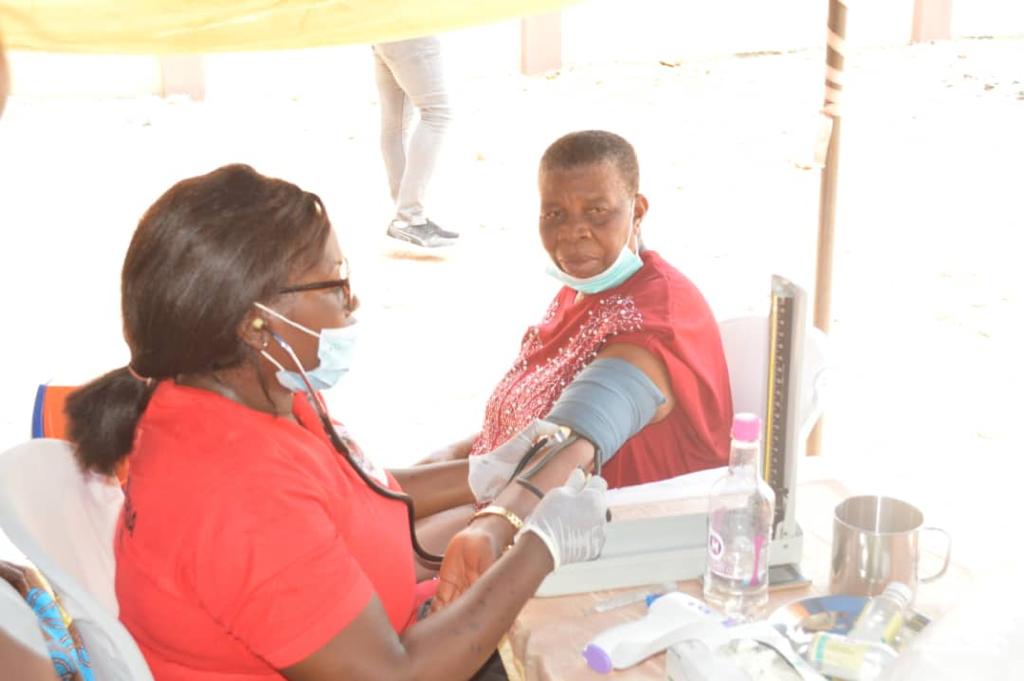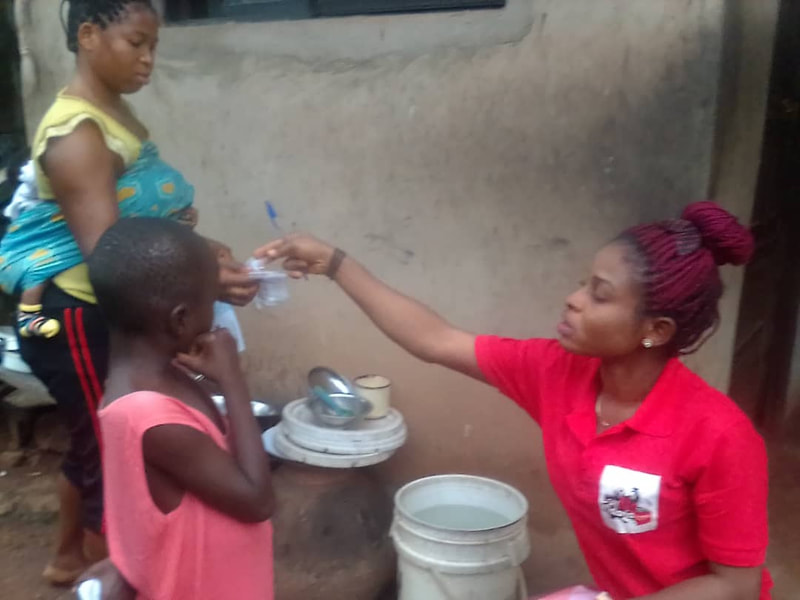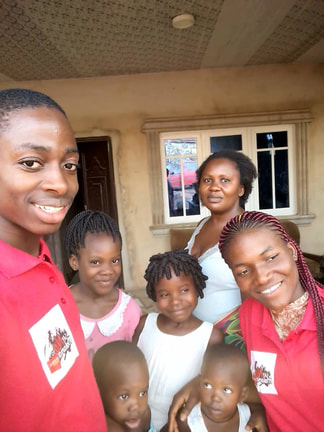Oasis Community Health Foundation
Established in 2019

Medical
Outreach
Say No
To Malaria

The Oasis Community Health Foundation was established in 2019, with our first project, Say No To Malaria, starting in Spring of 2019. We are currently in Phase II of the project as well as initiating a primary rural care centre in Amerchi Uwani, Enugu, Nigeria.
Our Vision
To improve health, hope, and quality of lives of people in rural communities in Nigeria.
Our Mission
To provide high-quality, longitudinal and comprehensive primary health care services that are easily accessible, readily available, entirely acceptable, and patient-centred to rural communities in Nigeria, all at no cost to all patients.
Our Focus
Provide timely and quality health and socio-economical services that directly and indirectly improve rural child health, maternal health and geriatric health.
Our Values
Global health equity, no boundary, no barrier.
Who we are
Oasis Community Health Foundation (OCHF) is a registered not-for-profit charitable organization, and a Rural Health Improvement Programme that saves lives, improves lives and boosts the lives of rural Nigerians. OCHF provides quality, comprehensive primary health care and other relevant services that are free and readily accessible to rural communities in Nigeria. OCHF provides free and the best-possible primary healthcare services at the Foundation’s medical clinic, community health outreaches, and school health programs. OCHF’s Malaria Control Project titled Say No To Malaria led to a 54% reduction in malaria incidence with zero severe Malaria and death in the rural community of Amechi Uwani Awkunanaw
OCHF was founded by Dr. Odoh Onuora, a primary care specialist. The OCHF’s programmes are Global Health Initiative Projects supported by renowned international academic and health organizations. In addition to building sustainable, high-quality rural healthcare services through local community participation, OCHF supports the cross-pollination of knowledge among participating international organizations.
OCHF’s medical clinic opens on weekdays and provides free physician consultations, laboratory services and medications. The health team in the clinic includes a doctor, nurse, laboratory technician and others.
What we do
Some of OCHF’s projects are :
-Women and Maternal Health
-Child Health
-Geriatric Health: chronic and complex disease management.
-School Health Program.
-Sickle Cell Disease Program
-Community Health Outreach
-Eye Care
-Dental Care.
There has been a significant and worsening global food crisis for the past few years, with countries with baseline poverty disproportionately and more adversely affected. The food insecurity and extreme hunger were aggravated by the extended negative economic impacts of the COVID-19 pandemic and the recent Russia-Ukraine war. Food insecurity poses more severe and devastating living conditions to poor and vulnerable underdeveloped countries like Nigeria. The rapidly evolving and deplorable stages of hunger and associated illness and death outpace existing global and national measures. The World Bank, World Food Programme (WFP), Food and Agriculture Organization of the United Nations ( FAO) and others have called out to all stakeholders and organizations at different levels to intervene hastily.
In May 2022, The FAO issued a Global Information and Early Warning System ( GIEWS) Special Alert # 349 announcing the unprecedented high level of food insecurity in the West Africa- Sahelian region. According to an FAO report, 27.3 million people in this region are facing acute food insecurity at a crisis and emergency level between March and May 2022. The report projected that between June and August 2022, if humanitarian measures and responses are not scaled up, about 38.3 million people are estimated to face acute food insecurity, the highest level on the organization’s record and about 40 percent higher compared to the same period in 2021. Of the 27.3 million affected persons by March-May, 2022,19.45 million ( about 71%) are from Nigeria, followed by people from Niger which was 4.4 million ( 16%) of the total. The data reflects the burden of an acute exponential spike on existing chronic poverty and hunger in Nigeria and the need for urgent innovative, and effective measures.
Nigeria is the most populous country in Africa and the seventh in the world, with an estimated population of about 200 million, of which about 50 % are female and 43% are aged 0–14 years.
Nigeria’s government is overwhelmed with the country’s poor economic situation and has called on local and international organizations and stakeholders to assist in improving the country’s food security. The stress call has led to the return of World Food Programme services to Nigeria and the collaboration of other organizations.
Oasis Community Health Foundation is championing collaborative grassroots strategies to alleviate the impacts of acute extreme food scarcity in rural Nigerian communities. In addition, OCHF has developed innovative, sustainable, scalable and effective long-term measures to significantly reduce the burden of chronic food insecurity in rural Nigerian communities.
Why we do what we do
Nigeria is a country in sub-Saharan Africa with a high disease and poverty burden, worse in rural communities. Primary health care services, when available, are expensive and can not be afforded by poor rural community people that must pay out of pocket. These make essential primary care services non-available and non-accessible in rural communities.
Nigeria frequently ranks topmost on the global list for countries with the highest mortality rate from the three most common killer diseases of children in the world: pneumonia, diarrhea and Malaria. In some regions in Nigeria, the maternal mortality rate is as high as 10%, worsening child’s suffering and economic hardship for families.

